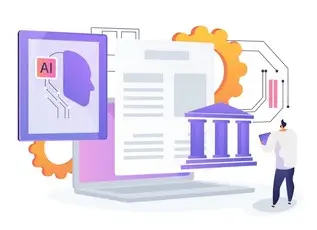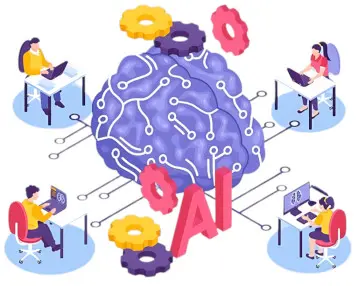Why do I need AI Governance?
From a user's perspective, AI governance ensures AI systems are safe, fair, and trustworthy by establishing policies and rules for AI use, thereby protecting clients from harm, bias, and misuse. This translates to confidence as accountability, user trust, and reduced business liability.
What can our business expect from AI Governance?
Clients and business expect safety and protection from AI misuse and data leaks. Our AI governance team build compliance with ethical transparency and accountability from service providers, staff, and IT personnel.
Accountability
When AI makes an error, or causes harm, governance defines where accountability lies.
Minimise Risk
Governance provides guardrails against common AI risks like bias, hallucinations, privacy breaches, and compliance failures.
Vendor relationships
AI governance provides for due diligence, contractual obligations, and monitoring of procured services so you can be assured you get what you pay for and it complies with your business legal duties.
Manage Data Risks
AI governance gives you data security, transparency and privacy safeguards to minimise exposure to risks in transferring information between you and third party providers.
Compliance
Governance navigates the legal landscape for your business and develops AI policies so you can be confident of compliance.
Why AI Governance matters to users?
Build trust
When you offer AI in your business your clients have trust you in its use.
Fairness and a lack of Bias
Your Clients feel assured that they will receive fair treatment from your AI implementations.
Immediate response
When AI makes an error, or causes harm, users can expect you have procedures and policies in place to mitigate consequences and protect them.
Transparency
When AI is used to provide a result, users know that result will be explained.
Privacy and Security
Users know your AI will handle their data securely and with privacy law compliance.
Users feel empowered
User feel empowered when interacting with your AI services as they have Human oversight, opt-out options, and feedback loops to improve services deliver means of redress.





